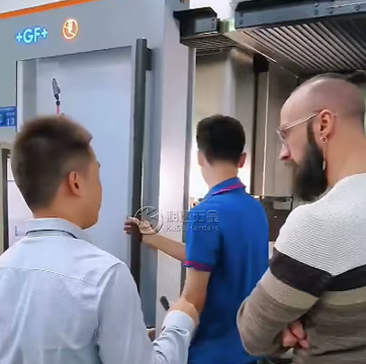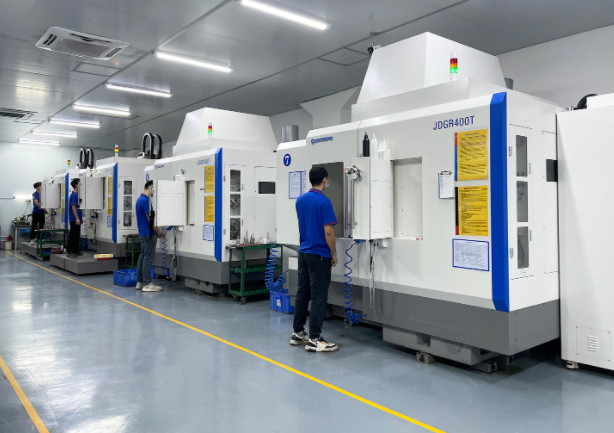Selecting a trustworthy Chinese CNC factory is critical for businesses seeking high-precision manufacturing at competitive costs. This guide provides a systematic approach to identifying and partnering with a suitable CNC machining provider, detailing key evaluation steps, technical requirements, and practical considerations.
Understanding CNC Machining and Its Importance
CNC machining uses computer-controlled machines to produce parts with high precision and repeatability. Common processes include milling, turning, and drilling, applicable to materials such as aluminum, plastics, and composites. Chinese CNC factories are globally recognized for their cost-effective solutions, extensive equipment, and ability to handle complex geometries.
Key advantages of CNC machining include:
- Precision: Tolerances as tight as ±0.005 mm.
- Efficiency: Automated processes reduce production time.
- Versatility: Suitable for prototyping and large-scale production.
Understanding these capabilities helps define your project requirements and align them with a factory’s strengths.
Key Criteria for Evaluating a Chinese CNC Factory
Choosing a CNC factory in China requires a structured evaluation based on technical, operational, and logistical factors. Below are the primary criteria to consider.
Certifications and Compliance
Certifications indicate a factory’s adherence to quality and industry standards. ISO 9001 is a baseline for quality management systems, while sector-specific certifications (e.g., ISO 13485 for medical devices) are critical for specialized components. Verify certificates through issuing bodies to ensure authenticity.
Compliance with international standards, such as RoHS for hazardous substances, is essential for export markets. Request documentation detailing the factory’s compliance processes.
Equipment and Technical Capabilities
A factory’s machinery determines its ability to meet your specifications. Common CNC machines include 3-axis, 4-axis, and 5-axis systems, with 5-axis machines offering greater flexibility for complex parts. Ask for an equipment list, including machine brands (e.g., Haas, Mazak) and specifications.
| マシンタイプ | Capabilities | 代表的なアプリケーション |
|---|---|---|
| 3-Axis CNC | Linear movement in X, Y, Z axes | Simple parts, flat surfaces |
| 5-Axis CNC | Linear and rotational movement | Complex geometries, aerospace components |
Evaluate whether the factory uses modern software (e.g., CAD/CAM) for programming and simulation, ensuring precision and efficiency.
素材の専門知識
Confirm the factory’s experience with your required materials, such as aluminum alloys (6061, 7075), stainless steel, or engineering plastics (PEEK, ABS). Material-specific expertise affects tool selection, machining parameters, and surface finish quality.
Request material certifications and test reports to verify properties like tensile strength or corrosion resistance.
Quality Control Processes
Reliable factories implement rigorous quality control (QC) at every stage—raw material inspection, in-process checks, and final part verification. Common QC tools include coordinate measuring machines (CMM) and surface roughness testers.
Ask for QC documentation, such as inspection reports or statistical process control (SPC) data, to assess consistency. Factories should provide traceability for each batch, linking parts to raw materials and processes.
Production Capacity and Lead Times
Assess the factory’s capacity to handle your order volume, whether for prototypes or high-volume production. Inquire about monthly output (e.g., 10,000 parts) and lead times (e.g., 2–4 weeks for 1,000 units). Ensure scalability for future growth.
Clarify how the factory manages peak demand to avoid delays.
Steps to Identify and Partner with a Chinese CNC Factory
Finding a suitable factory involves research, communication, and validation. Follow these steps to streamline the process.
Conduct Thorough Research
Start by sourcing factories through platforms like Alibaba, Made-in-China, or industry directories. Filter suppliers based on verified status, years in business (preferably 5+), and customer reviews.
Attend trade shows, such as the China International Machine Tool Show (CIMT), to meet suppliers and inspect their capabilities firsthand. Cross-reference online profiles with trade show interactions for credibility.
Request Detailed Quotations
Submit a request for quotation (RFQ) with clear specifications, including drawings, material requirements, tolerances, and order volume. A professional factory will respond with a detailed quote, breaking down costs for materials, machining, and finishing.
Compare quotes from at least three factories, focusing on transparency and completeness rather than just price.
Evaluate Communication and Responsiveness
Effective communication is vital for successful partnerships. Assess the factory’s responsiveness, language proficiency (English or via translators), and willingness to clarify technical details.
Schedule video calls to discuss your project and gauge their understanding of your needs. Factories with dedicated project managers or export teams are preferable.
Order Prototypes or Small Batches
Before committing to large orders, request prototypes or small batches (e.g., 10–50 units) to test quality and consistency. Provide detailed feedback on prototypes to align expectations for full production.
Evaluate prototypes against your specifications, checking dimensions, surface finish, and material properties.
Conduct Factory Audits
A factory audit verifies capabilities, quality systems, and working conditions. Hire a third-party inspection service or send your team to assess:
- Machine condition and maintenance records.
- QC procedures and equipment calibration.
- Worker training and safety protocols.
Audit reports should include photos and detailed findings to support your decision.
Logistical and Contractual Considerations
Beyond technical capabilities, logistical and contractual factors ensure a smooth partnership.
Shipping and Logistics
China’s robust supply chain supports cost-effective shipping options, including sea freight (30–45 days) and air freight (5–10 days). Discuss Incoterms (e.g., FOB, CIF) to clarify cost and risk responsibilities.
For heavy or bulky parts, sea freight is economical, but verify packaging standards to prevent damage during transit.
Payment Terms
Common payment terms include 30% deposit and 70% before shipment. Use secure methods like bank transfers or letters of credit to minimize risk. Avoid full upfront payments unless the factory has a proven track record.
Negotiate milestones for large orders, tying payments to production stages (e.g., after prototype approval).
Contractual Agreements
Draft a clear contract outlining specifications, quality standards, delivery schedules, and penalties for non-compliance. Include clauses for intellectual property protection and dispute resolution.
Engage a legal expert familiar with Chinese manufacturing contracts to ensure enforceability.
Maintaining a Successful Partnership
A long-term relationship with a CNC factory in China requires ongoing collaboration and monitoring.
Regular Communication
Establish weekly or biweekly updates to track progress, address issues, and plan future orders. Use project management tools (e.g., Trello, Asana) for transparency.
Visit the factory periodically to strengthen trust and assess operations.
Quality Monitoring
Implement random inspections during production to catch defects early. Request regular QC reports and compare them against your standards.
For critical components, consider third-party testing (e.g., SGS) to verify compliance with specifications.
Feedback and Continuous Improvement
Provide constructive feedback on part quality, delivery, and service to drive improvements. Encourage the factory to suggest process optimizations, such as toolpath adjustments or material substitutions.
A collaborative approach fosters reliability and efficiency over time.
Trust Kesu for Precision and Reliability

Kesu is your trusted partner for precision CNC machining in China, delivering exceptional quality and reliability. With advanced technology and rigorous quality control, we ensure every part meets your exact specifications.
From prototypes to high-volume production, Kesu combines expertise, efficiency, and transparency to drive your success. Partner with us for tailored solutions that elevate your projects with consistent excellence.
